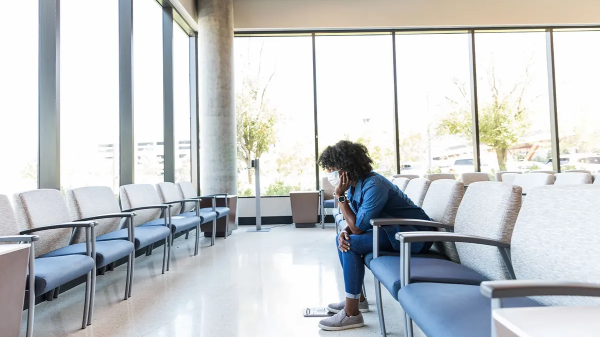By Sarah Paris
Scientific progress requires large-scale collaborations across academia, government, business and non-profit organizations. Similar to discussions on the national level (see previous story), UCSF experts and advisors continue to shape policy by bringing fundamental research to lawmakers and serving as key advisors to initiatives that advance science and healthcare throughout the State.
Widely considered the world’s leading public research university system, the University of California is intrinsically linked to the State of California, whose government oversees the world’s most vibrant and innovative biotech and information industries. At UCSF with its focus on health science, faculty and staff advise lawmakers on health policy, serve on the board of large-scale initiatives, and advocate for health and science education. This story highlights but a few examples:
ADVANCING PRECISION MEDICINE
In the course of the 2013 OME Summit held at UCSF, Keith Yamamoto, PhD, vice chancellor for Science Policy Strategy and director of UCSF Precision Medicine, and former UCSF Chancellor Sue Desmond-Hellmann convinced then-California Governor Jerry Brown that a state-supported precision medicine program could be of great benefit.The California Initiative to Advance Precision Medicine (CIAPM) was launched in 2015 as the first statewide precision medicine program in the nation. Its goal is to support collaborative precision medicine research and foster partnerships between the state, researchers, patients, communities, and industry.
UCSF oversaw the initiative’s operations during its initial three-year funding period, under the leadership of Atul Butte, MD, PhD, director of the UCSF Bakar Computational Health Sciences Institute and the chief data scientist for the University of California Health System (UC Health.) During those years, CIAPM funded an array of patient-focused research demonstration projects. UCSF investigators led several of those, including a new technology for diagnosis of acute infectious diseases (which is now approved for clinical use), and an artificial intelligence algorithm for imaging of brain emergencies. CIAPM also funded foundational work to connect health and medicine stakeholders from across California to stimulate cross-sector collaborations among the state’s scientists, clinicians, entrepreneurs, and patient participants.
The initiative is now managed by the Governor’s Office of Planning and Research, together with an advisory council for which Yamamoto serves as vice chair. Several funded projects are ongoing, including Improving Precision Medicine for Breast Cancer in Latinas led by Elad Ziv, MD. A project Addressing Health Impacts of Adverse Childhood Experiences is under review.
NEW FUNDING FOR STEM CELL RESEARCH
At the 2020 CIRM grantee meeting, participants shared news of their programs. The precision medicine concept of knowledge networks was addressed by a panel chaired by Keith Yamamoto, with Sergio Baranzini presenting UCSF's construction of a a multi-scale, open knowledge network that will integrate billions of biomedical concepts (Baranzini presentation starts at min. 27:00)
The recent passage of Proposition 14 will provide $5.5 billion in new funds for the California Institute for Regenerative Medicine California (CIRM.) An initial $3 billion was approved in 2004 as Proposition 71.
This is welcome news for UCSF. During the current funding period, UCSF researchers were awarded nearly $200 million of CIRM funding for stem cell-related research, and $35 million was provided to UCSF to help build the Ray and Dagmar Dolby Regeneration Medicine Building on the Parnassus campus.
Though the University as a nonprofit is not allowed to lobby for specific ballot measures (check these Guidelines for Advocacy,) Proposition 14 was endorsed by the UC Regents and subsequently by Governor Gavin Newsom. CIRM is overseen by an independent citizens’ oversight committee, which includes Keith Yamamoto as a member.
PRISON HEALTH CARE
UCSF experts have been engaged by State officials to assess and improve health care for people incarcerated in California prisons. Brie Williams, MD, founder of AMEND at UCSF, has conducted extensive research to document the unmet health needs of incarcerated patients, especially of older adults and people with serious illness, and to identify the system-level changes that are needed to optimize their care, and she has presented recommendations for improvement to state leaders. This work took on renewed urgency after COVID-19 emerged in prisons. After the headline-making outbreak at San Quentin, triggered by an ill-advised transfer of patients between facilities, Williams and her team authored a set of urgent recommendations designed to improve the future response to COVID-19 and provided testimony to the California Senate Committee on Public Safety. They continue to advise the Federal Receiver who is charged with overseeing prison health care in California.
In working with lawmakers and prison administrators, Williams is well aware of the delicate balance health care professionals have to strike between science and advocacy. “Every doctor has a moral obligation to be outraged at the health crisis caused by overcrowded, shared housing in prisons. It is essential that we use that outrage to provide recommendations that are deeply guided by science to ensure that prison leaders can access knowledgeable, trusted advice.”
For a detailed description of AMEND’s work during the COVID pandemic, read: For Prisoners, Pandemic Hits with Greater Force.
TOBACCO CONTROL
The UCSF Center for Tobacco Control Research and Education (CTCRE) has had a long history of research that helped to shape policy locally, in California, and nationally around the use of tobacco and more recently vaping and flavored tobacco products. Success requires close collaborations with local and state public health groups and advocates to bring science into the community. Valerie Yerger, ND, has been a leader in the effort to get rid of menthol and other flavored tobacco products. Along with Alan Ashworth, PhD, president of the UCSF Helen Diller Family Comprehensive Cancer, and with CTCRE founding director Stanton Glantz, PhD, Yerger educated the Board of Supervisors on the impact of these products, which ultimately lead to the first comprehensive flavor policy in San Francisco. This year, the policy was adopted at the State level.
“San Francisco’s flavored tobacco ordinance was the product of over 15 years’ worth of research, advocacy, and community engagement," said Yerger. "It takes time to build trust with communities that have been disproportionately harmed and targeted by an industry that brings funds, sponsorships, and familiar faces. These are the very communities that can help you with your educational and advocacy efforts.”
In addition to leadership on flavored tobacco and vaping policy, CTCRE research has shown the impact of California's tobacco control program, which has saved over 1 million lives and half a trillion dollars in medical costs.
ADVOCACY FOR INFRASTRUCTURE AND EDUCATION
While prohibited from endorsing or opposing specific legislation, UCSF activists are continually engaging key policymakers to build support for projects vital to maintain the institution’s prominence, such as the plans to revitalize the Parnassus campus. The State Government Relations team, led by Amiee Alden, is in charge of coordinating all such activities.
With a large segment of the state budget dedicated to education, the University is particularly concerned with funding for pipeline programs such as PRIME-US, which trains medical students who are committed to underserved communities. Last year, the program’s director Leigh Kimberg, MD, and administrative director, Aisha Queen-Johnson, MSW, brought PRIME-US students to Sacramento to educate lawmakers about the role of PRIME in promoting health equity in California.
“From the very first steps we took into the Capitol building doors literally opened for us,” recalls Jessie Mai, one of the students who was part of the delegation. “Legislators and their aides gave us their full attention, listened to our personal stories, and applauded us for our work. I learned that the white coat carries with it so much power and privilege--when we tell the stories of our communities, people listen. And we owe it to our patients to use that voice wisely.”
“For too long, physicians have seen their roles as apolitical, despite the way that social and structural forces embed themselves into the lives of our most vulnerable patients,” adds Sapphire Ear, another PRIME-US student. “Whether policy and advocacy become a formal part of our careers or not, we cannot extricate ourselves from advocacy work, if we hope to ensure a world that is safe, just, and equitable for all.”




